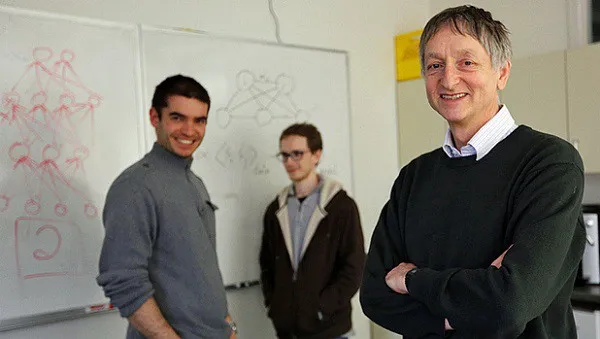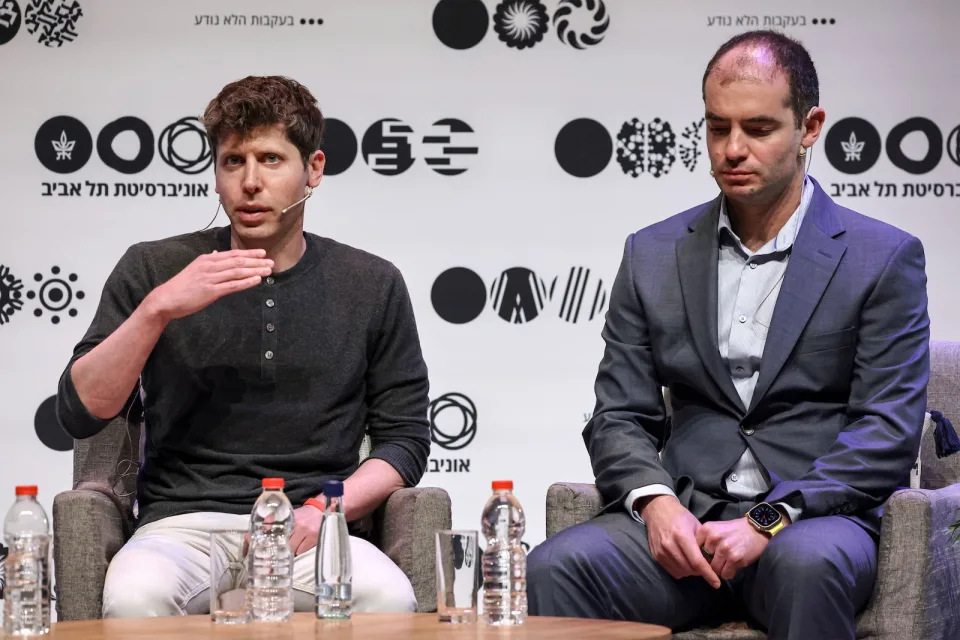Contents
Introduction:
In the OpenAI team, everyone’s contribution is crucial, especially figures like Ilya Sutskever, Sam Altman, and Greg Brockman. However, if we have to choose one person as the “Father” of AI, Ilya Sutskever is the most suitable choice. Even though Sam Altman and others have made significant contributions, in the realm of AI technology, particularly in deep learning and natural language processing, Sutskever stands out. As a co-founder and chief scientist, he played a key role in advancing these technologies, earning him the title of the Real Father of OpenAI.
Ilya Sutskever’s Past
Ilya is now an American, born in Russia in 1985, during the dissolution of the Soviet Union. Later, he moved to the United States. Sutskever’s upbringing profoundly influenced his idealism. He was born in Nizhny Novgorod, Russia, moved to Israel with his family as a child, and eventually settled in Canada. His parents, from a middle-class background, were not prominent figures in AI but played a significant role in his education and support.
Sutskever’s parents were very attentive to his upbringing, providing him with a good learning and living environment. This family atmosphere sparked his love for mathematics and computer science, laying the foundation for his future achievements. After spending part of his childhood in Jerusalem, Israel, he completed his secondary education in Canada and eventually earned advanced degrees in computer science and machine learning from the University of Toronto. He later moved to the United States, briefly studied at Stanford University, and then chose OpenAI as his career path.
Ilya Sutskever (left), Alex Krizhevsky (centre), Geoffrey Hinton (right)
The Story of ‘Danko’ and Ilya Sutskever
“Danko” is a work by Soviet writer Maxim Gorky, telling the story of a young revolutionary named Stepan Danko. In the story, Danko leads his people through an immense forest. However, when the sun disappears, leaving everyone in darkness, fear and complaints spread among the people. Some refuse to continue, others want to go a different way, and distrust arises. In this darkness, Danko sacrifices himself by tearing out his heart to light a lamp, guiding everyone out of the forest at the cost of his life.
This story reflects the view of human light and hope, suggesting that even in the darkest times, it is possible to find a way out through sacrifice and effort. Although it is unknown if Sutskever read this story in his childhood, Danko’s ultimate sacrifice contrasts with Sutskever, who realizes his ideals through wisdom and technological contributions without sacrificing his life. Danko’s belief was to lead his people to light, while Sutskever’s belief is to advance AI technology for the benefit of all humanity. Both share a common ideal.
Sutskever’s emphasis on the safety and ethics of technology reflects his deep sense of social responsibility and mission. His work is not only for scientific progress but also for broader social benefits.
The Divergence between Ilya Sutskever and Sam Altman: Idealism vs. Realism
Ilya Sutskever is a technological developer and an idealist. In contrast, Sam Altman is pragmatic and business-minded, focusing on rapidly advancing technology, capturing market share, and driving company growth and profitability through practical applications. His goal is to make OpenAI a global leader in artificial intelligence.
In the early stages of their collaboration, their strengths complemented each other, driving OpenAI’s development. Sutskever’s technical and research abilities combined with Altman’s business strategy and market expansion led to significant progress for OpenAI in a short time. However, as the company grew and external pressures increased, cracks began to appear in their relationship.
On November 17, 2023, the board of directors, led by Ilya Sutskever, dismissed Sam Altman due to a misalignment with the company’s mission. This event shocked the global tech industry. In my personal opinion, at that time, ChatGPT had reached the fourth generation. It was capable of directly accessing the internet (although this feature of ChatGPT 4 was later discontinued). Sutskever, as the lead developer, should have been the first to understand that OpenAI had truly achieved the emergence of AI. Although it was a newborn AI and made mistakes in many areas, the potential risks of AI also became apparent. Sutskever might have even thought about the next ten years; even though AI currently lacks the ability to think for itself, once it does, AI will be fundamentally different from humans. Once it makes a decision on an event, that decision could be irreversible. This is the concern of all humanity because, in this respect, AI is different from humans.
Ilya Sutskever Has Exited
Ilya Sutskever’s exit is undoubtedly a significant change for OpenAI. As a key founder and scientist, his contributions to OpenAI’s development and the success of the GPT model were immense. His departure marks the end of an era but may also signal a new beginning.
From a positive perspective, Sutskever’s exit could bring new opportunities and challenges, especially as he embarks on a new, personally meaningful project. For the AI field, his talents and experience will continue to make an impact elsewhere, potentially leading to new breakthroughs and innovations.
For OpenAI, this is also a chance to adjust and move forward. OpenAI still has a strong team and resources, capable of continuing progress in AI. While Sutskever’s exit is significant, it might not negatively impact OpenAI’s development. Instead, it could be an opportunity for reinvention and progress, bringing new prospects for both Sutskever and OpenAI.
Conclusion:
I believe that Ilya Sutskever’s exit from OpenAI is his choice to lead his followers into new realms!
Published by: Mr. Mao Rida. You are welcome to share this article, but please credit the author and include the website link when doing so. Thank you for your support and understanding.




